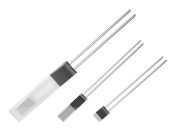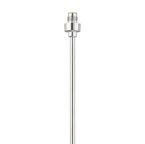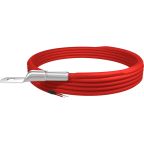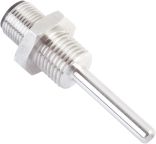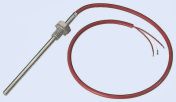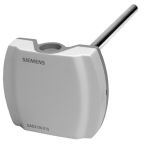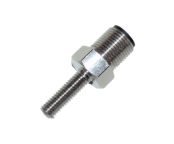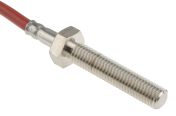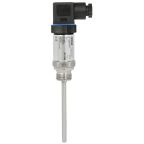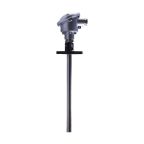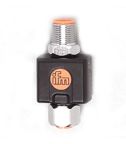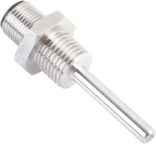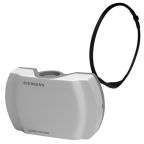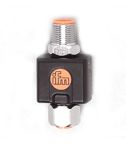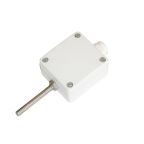RTD Sensors
Vad är RTD-sensorer?
Resistiva temperaturdetektorer eller RTD:er används för att känna av varierande temperaturområden och resistansnivåer i industriella och kommersiella tillämpningar. En RTD består av ett resistanselement och isolerade koppartrådar.
Det resistiva elementet är vanligtvis tillverkat av platina, nickel, nickel-järn eller koppar eftersom dessa material har hög noggrannhet, snabb responstid och ett brett temperaturområde. RTD:ens huvudfunktion är att undersöka ökningar och minskningar i temperatur och kontrollera dem därefter.
Hur fungerar RTD-sensorer?
RTD:er använder en sensor för att detektera temperaturförändringar. Metallkomponenten eller RTD-resistorn är placerad i närheten av där temperaturmätningen behöver ske. När den elektriska strömmen passerar genom metallen mäter resistanselementet den elektriska strömmen som passerar genom det. När metallens temperatur ökar, ökar RTD:en den elektriska resistansen, som mäts i Ohm.
Resistansvärdet kan omvandlas till temperatur och resistansförhållandet kan variera beroende på vilket element som används för resistorn. Elektricitetsflödet minskas sedan, vilket i sin tur minskar temperaturen.
Typer av RTD-sensorer
Den vanligaste typen av RTD är en pt100. En PT100-sensor är vanligtvis den mest exakta temperatursensorn med hög stabilitet och repeterbarhet. Pt100 är en sensor av laboratoriekvalitet eftersom den uppfyller IEC 60751.
Pt1000 finns också tillgängliga med liknande temperaturområden och toleranser, men en pt1000 kommer att ha ett resistansvärde som är tio gånger högre än pt100 för samma temperatur. Två-, tre- och fyrtrådsensorer används i RTD-avkänningskretsar.
RTD-kretsar är konfigurerade så att sensorns resistans kan beräknas noggrant. Ledartråden som används mellan resistanselementet och mätelementet har också sin egen resistans, så två-, tre- och fyrtrådsensorer ger ett sätt att kompensera för fel i temperatur- och resistansmätning.
Fördelar med att använda RS RTD-sensorer
- Noggranna
- Temperaturmätning
- Höga temperaturområden
- Förbättrad hållbarhet
- Konsistens
- Repeterbarhet och tillförlitlighet
RTD:er vs termoelement
RTD:er erbjuder flera fördelar jämfört med termoelement, såsom:
- Bredare temperaturmätning
- Högre noggrannhet än termoelement
- God utbytbarhet
Utforska vårt breda utbud av högkvalitativa RTD-sensorer för alla typer av applikationer.
